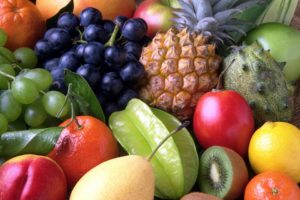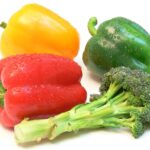 November 2, 2017
November 2, 2017
 Allergies, Asthma, Breathe EZ, Children's Health, Men's Health, Women's Health
Allergies, Asthma, Breathe EZ, Children's Health, Men's Health, Women's Health
 Leave a comment
Leave a comment
 cantelope, flax seeds, food, healthy eating, kids with food allergies
cantelope, flax seeds, food, healthy eating, kids with food allergies
 Asthma is a challenging, but very treatable illness. There are many medications and tools available to help relieve symptoms. Did you know that asthma prevention can start in your kitchen? Not all foods are created equal. What foods might be best for asthmatics? There are even healthy foods that may worsen your asthma symptoms.
Asthma is a challenging, but very treatable illness. There are many medications and tools available to help relieve symptoms. Did you know that asthma prevention can start in your kitchen? Not all foods are created equal. What foods might be best for asthmatics? There are even healthy foods that may worsen your asthma symptoms.
Foods That May Improve Asthma Symptoms and Support Your Respiratory System
1. Apples – these contain flavonoids such as khellin, which has been shown to open the airways.
2. Cantaloupe – these are rich in Vitamin C, which we already know is good for our immune system. This vitamin aids in clearing out congestion in the airways.
3. Carrots – these contain beta-carotene, which is an antioxidant that is converted to Vitamin A. This vitamin can reduce the possibility of exercise-induced asthma.
4. Coffee – Coffee is a natural source of caffeine, which has been proven to improve airflow. On the other hand, caffeine (especially in high doses like that found in coffee) is not recommended for children for various reasons.
5. Flax seeds – these are rich in Omega-3s, which research has found to be beneficial to asthma. They also contain magnesium which relaxes the muscles surrounding the bronchi and airways, keeping them open.
6. Garlic – Garlic is an anti-inflammatory. Anti-inflammatories are beneficial to asthma because they reduce swelling and mucus production in the airways.
Potential Allergens and Intolerances That May Worsen Asthma
1. Eggs – Because many people already suffer from an egg allergy, the reaction when consuming eggs can be in the form of exacerbated asthma.
2. Peanuts – Another common allergen. Severe reactions can be fatal. Those with a peanut allergy can actually develop asthma.
3. Salt – Salt contributes to inflammation by causing fluid retention.
4. Shellfish – Yet another common allergen, particularly in children.
5. Wine – Studies suggest that the sulfites in wine may trigger asthma attacks. On the other hand, red wine has been found to lessen symptoms if consumed in moderation.
6. Milk – If you are lactose intolerant or have any other dairy-related allergy, consuming milk products can cause wheezing, coughing, and other respiratory problems. On the other hand, milk contains Vitamin D, which can ease symptoms.
We hope that this information has given you some food for thought. Ask your doctor if dietary changes could be included as a part of your asthma management plan. He or she may also be able to test you for food-related allergies that might be exacerbating your symptoms.
Additional Resources
Read our blog on How to Manage Food Allergies During the Holidays
Check out the Asthma and Allergy Foundation of America’s great online resource for kids with food allergies.
















